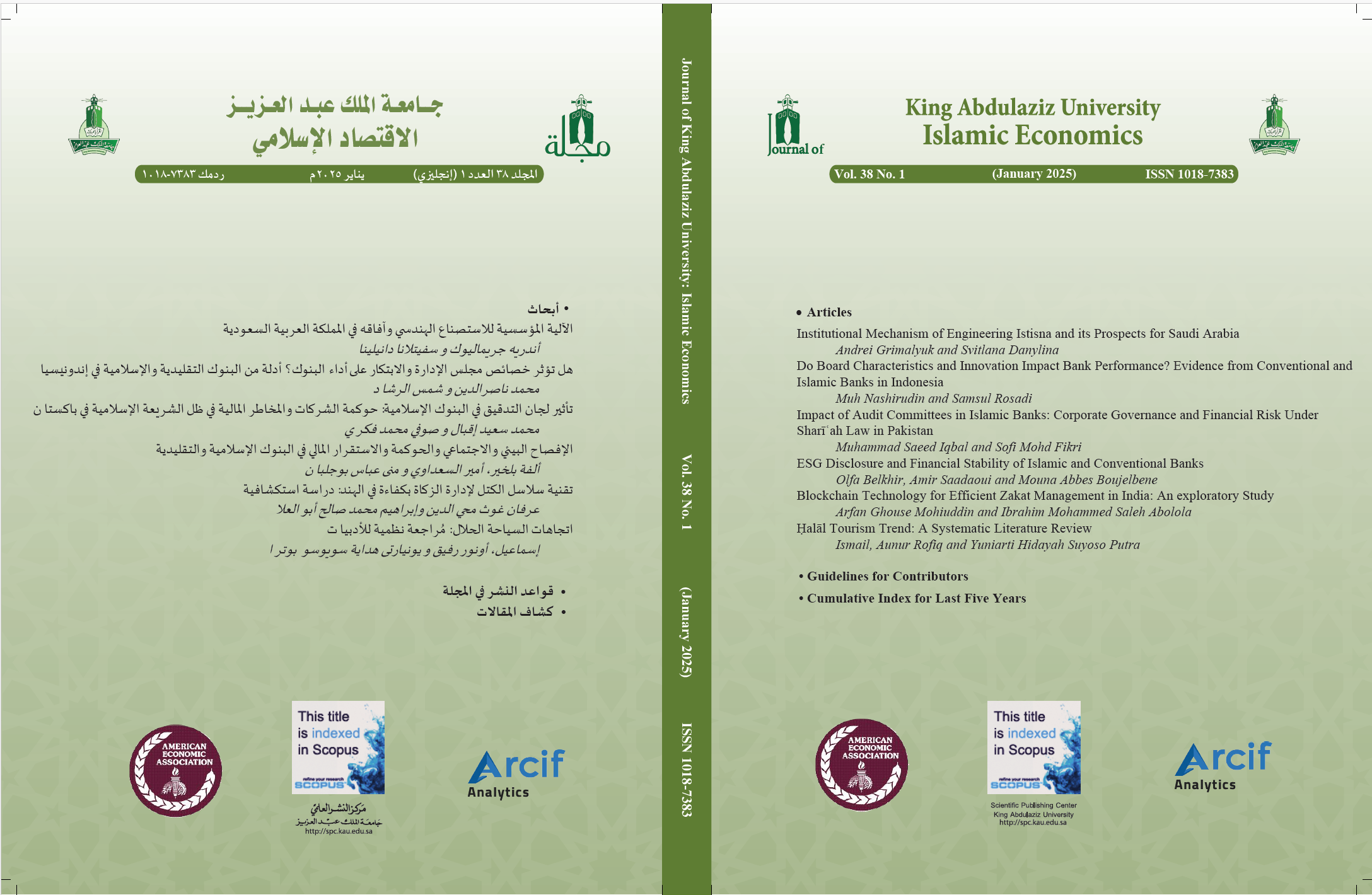ESG Disclosure and Financial Stability of Islamic and Conventional Banks
Main Article Content
Abstract
The recurrence of banking and financial crises has revealed the complexity and vulnerability of the conventional financial and banking system. In this paper, we empirically investigate the impact of Environmental, Social, and Governance disclosure (ESG) on banking stability, as well as the individual effect of each dimension of ESG, with particular attention to the moderating role of capital structure. Using a mixed sample composed of 18 Islamic banks and 22 conventional banks from 2014 to 2022, the results indicate a positive and significant effect of ESG, measured by the ESG score, on banking stability. Among the dimensions of the ESG score, only environmental and governance practices have shown a significant positive link with banking stability. However, the social dimension did not have a significant effect on this variable. Additionally, our results suggest that the Islamic character further enhances the positive relationship between ESG and financial stability due to ethical foundations. Furthermore, we find that the financial stability of Islamic and conventional banks primarily depends on capital structure, specifically the adequacy of equity, and credit risk management. Our study sheds light on the essential role of capital structure in moderating the benefits of ESG disclosure, an effect that has not been extensively examined in previous studies.

